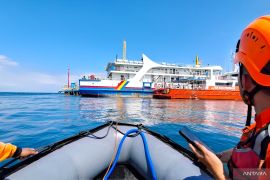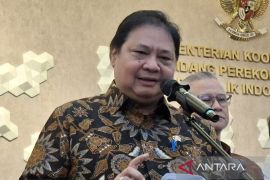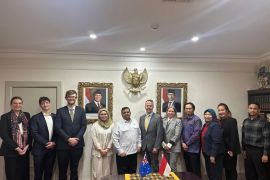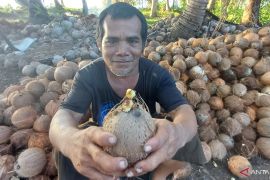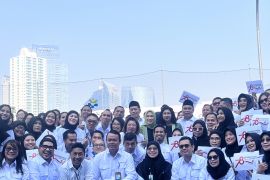"Indonesia should lead the formation of new norms in the fight against illegal fishing in the region and also at the global level," Luhut Pandjaitan stated.Jakarta (ANTARA News) - Indonesia needs to lead global efforts in eradicating illegal fishing since it is closely linked to other crimes that need to be addressed through international cooperation.
"Indonesia should lead the formation of new norms in the fight against illegal fishing in the region and also at the global level," Coordinating Minister for Maritime Affairs Luhut Pandjaitan stated here on Tuesday.
According to Pandjaitan, at the regional level, Indonesia has led a regional meeting that will form a legal instrument to combat illegal fishing.
He noted that the effort involves countries in the Association of Southeast Asian Nations, Australia, New Zealand, Papua New Guinea, China, Korea, Japan, the US, and EU countries.
"Japan, the US, and the EU need to be involved as the worlds fishery market countries. The EU is the worlds largest fish importer, amounting to 24 percent of the total value of fish business in the world. Without pressure from the worlds biggest market, efforts to combat illegal fishing will be difficult to be carried out," he explained.
In addition, he said, at the Association of Indian Ocean Oversight Countries Summit in Jakarta, some time ago, a document of cooperation on fighting illegal fishing was agreed.
Another effort is through international symposiums on fishery crimes held in several countries.
"Indonesia should use this momentum to demonstrate its leadership," he said.
Earlier, Minister of Maritime Affairs and Fisheries Susi Pudjiastuti had urged all sides to understand that Illegal, Unreported, and Unregulated fishing is an organized transnational crime, which can also be linked to trafficking, drug smuggling, illegal fuel oil transactions, smuggling of rare animal species, and other crimes.
The minister believes that such an understanding should encourage the formation of an independent expert team that will recommend plans to institutionalize fishery crimes.
According to Pudjiastuti, Indonesia has borne witness to crimes of human rights violations, including human trafficking, and child slavery, as well as physical and sexual abuse that occurred aboard fishing vessels.
The minister said the smuggling of foodstuffs and other items, such as rice, onion, and clothing, as well as drugs, alcohol, and narcotics also often occur.
"They also smuggle endangered wildlife, such as parrots and armadillos," the minister noted.
Pudjiastuti expressed hope that the UN member countries would not let illegal fishing take place in any regions.(*)
Editor: Heru Purwanto
Copyright © ANTARA 2017

